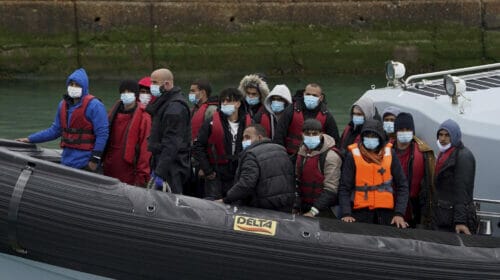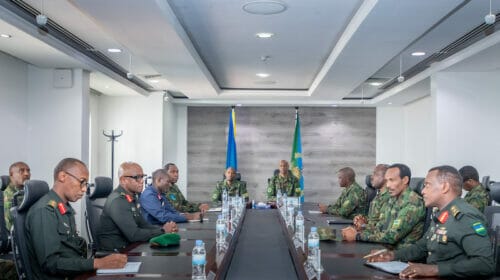In Rwanda, a deadly fight among the ruling elite
KAMPALA, Uganda — The mourners who railed against Patrick Karegeya’s killers spoke of them as if they knew exactly who they were.
Officials in Rwandan President Paul Kagame’s government carried out the killing, some whispered in private, but none dared say so in public at a requiem in Uganda for the former Rwandan spymaster who was found dead in a Johannesburg hotel earlier this month.
Karegeya remained close to the center of power in his decade-long role as the boss of Rwanda’s external intelligence service, and was part of an elite group of decorated war heroes who had mostly grown up as Tutsi refugees in neighboring Uganda.
But that network of Kagame’s wartime allies has been dwindling over the years as some defect following disagreements with the president. Now, Kagame faces increasing accusations he is running a covert campaign to eliminate his opponents who have left Rwanda.
Twenty years after the genocide, some critics predict that there will be more killings, saying Kagame— like President Yoweri Museveni in Uganda — seeks an extended grip on power based on a younger, more loyal group of army officers who are not expected to question his authority.
After Karegeya’s body was discovered, possibly strangled, the dissident group he belonged to, the Rwanda National Congress, claimed he was assassinated on Kagame’s orders. Rwanda’s government has not officially denied it, and Kagame himself has since warned that those who “betrayed the nation cannot escape the consequences.”
“I cannot be apologetic about that if you know the grenades that have been thrown on our streets killing Rwandan children,” Kagame said on Jan. 12, in an apparent reference to the accusations by the government that dissidents were behind a series of grenade attacks in Rwanda.
Mozambican police are holding four Rwandans, including a senior military official, in connection with the killing of Karegeya.
Rwanda’s government was accused of trying to assassinate another prominent Tutsi dissident, Gen. Kayumba Nyamwasa, who once had been Rwanda’s military chief before he had a falling out with Kagame and fled to South Africa. In 2010, gunmen twice tried to kill Nyamwasa, who says Kagame hunts Rwandan dissidents “using hired killer squads.”
Charles Rwomushana, an independent analyst who previously worked for Uganda’s domestic intelligence agency, said that dissidents like Nyamwasa are “very credible” because of their historical prestige and their close knowledge of the president. Rwomushana believes Kagame wants to “build a new layer” of army officers who have no direct link to the rebellion that brought him to power.
“He wants to manage (the generals) by instilling fear,” he said. “That fear makes them take flight.”
The ouster last year of a senior government official who opposed a possible third term for Kagame has fuelled speculation the president will seek more time in office when his last constitutional term expires in 2017. That official, former Justice Minister Tharcisse Karugarama, was widely seen as an influential member of Kagame’s government. Like Kagame and Karegeya, Karugarama is an ethnic Tutsi who grew up as a refugee in Uganda, a country many Rwandans call home and where they feel safer.
At a funeral service for Karegeya in the Ugandan capital of Kampala on Jan. 14, one relative was thankful for the “safety and peace” of those who silently mourned Karegeya, who was buried in South Africa.
Rwanda today boasts some of Africa’s best roads and hospitals, as well as impressive literacy rates that have made the small Central African nation a darling of global statesmen. But Rwanda’s ever-expanding dissident community insists the world has turned a blind eye to Kagame’s alleged ruthlessness.
Among the dissidents, the death of Karegeya has sparked speculation that influential Tutsi army generals such as Karenzi Karake, the head of the national security service, are likely to be purged as Kagame tries to stay fully in charge.
Brig. Joseph Nzabamwita, the Rwandan military spokesman, did not respond to a request for comment.
In a letter by Karegeya that the Rwanda National Congress distributed, saying it was the former spy chief’s last letter, he compared Kagame’s rule to that of a brutal and notorious Ugandan dictator.
“Not since the days of Idi Amin have the security services of a state terrorized a nation to the extent to which Rwanda’s security services have visited fear and terror upon the country’s citizens,” Karegeya wrote in Dec. 28 letter to a U.S.-based religious group.
Copyright 2014 The Associated Press. All rights reserved. This material may not be published, broadcast, rewritten or redistributed.



